Sharri Markson: Scott Morrison gets it right, cracking down on China
Previous Australian governments have vastly underestimated the threat a rising China could pose, but Scott Morrison is taking a tough stance against Beijing’s ambitions to dominate us and the entire world, writes Sharri Markson.
Opinion
Don't miss out on the headlines from Opinion. Followed categories will be added to My News.
There’s no question Scott Morrison is leading the toughest strategic and policy approach towards China of any government in Australia’s recent history.
Morrison’s approach puts sovereignty and national security ahead of economic prosperity.
This forms the single biggest policy difference between the Turnbull and Morrison governments.
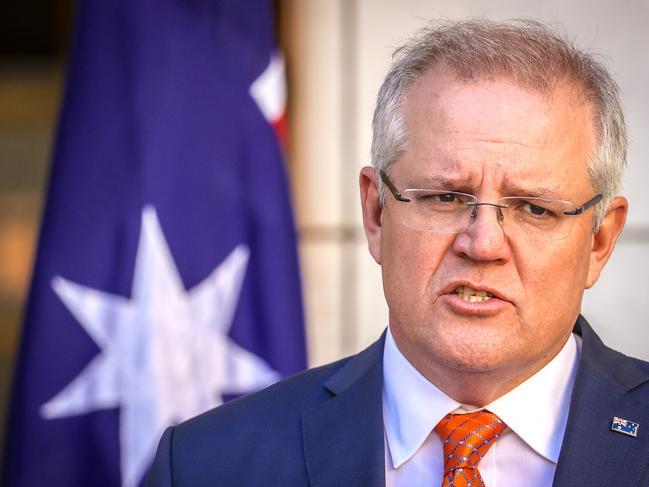
It’s fair to say successive Australian governments, both Labor and the Coalition, vastly underestimated the threat a rising China could pose, a threat that has increased markedly since Xi Jinping assumed the presidency in 2013.
Behind the scenes, Morrison, like Tony Abbott before him, is clear-eyed about China’s ultimate intention — which is, to put it bluntly, to control the world, including Australia.
This perception of China’s end goal underpins the Morrison government’s foreign policy approach.
He moved swiftly this week to suspend Australia’s extradition treaty with Hong Kong in the wake of China’s national security law that up-ended the joint declaration between the UK and China over the future of Hong Kong.
Morrison was one of the first in the world to do so, along with prioritising visas for Hong Kong citizens.
Just as Morrison tore up the extradition treaty with Hong Kong, with no fuss or fanfare, it is extraordinary to reflect on the passion with which former Foreign Minister Julie Bishop pursued ratification of Australia’s extradition treaty with China just three years ago.
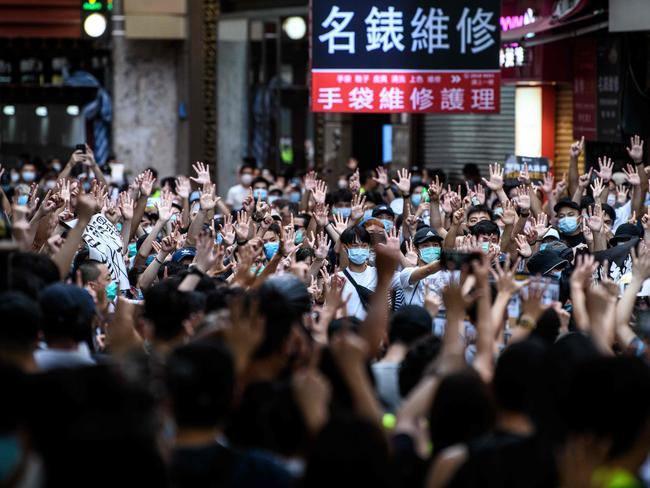
The Howard government had negotiated the extradition treaty in an era when China was far less assertive and aggressive, but never ratified it.
Neither did Kevin Rudd, Julia Gillard or Tony Abbott, all deeply concerned about China’s legal system and human rights abuses, among a myriad other powerful issues.
Official advice from the Department of Prime Minister and Cabinet warned Abbott when he was Prime Minister against ratifying Australia’s extradition treaty with China in a briefing note dated December 19, 2014.
He had no enthusiasm for signing it, alert to the problems of China’s criminal justice system.
Inexplicably, Turnbull decided to ratify it.
DFAT’s advice supported this move – indicating major problems within the public service – and there was pressure from Beijing to make it happen.
“Julie Bishop, reflecting DFAT’s advice, supported ratification, as did the Attorney-General’s Department,” Turnbull writes in his book.
“Although it never came up at leaders’ discussions, we had every reason to believe that a failure to ratify the extradition treaty would make it harder for us to ensure that China did not impose the death penalty on Australian citizens convicted of capital offences.”
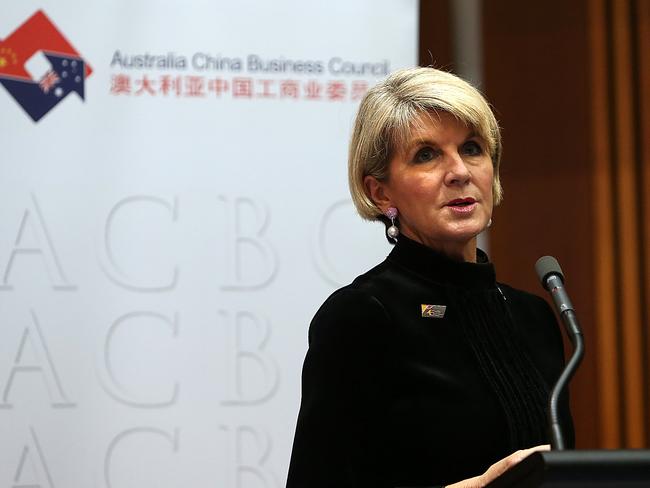
Ruminating on how hard the Turnbull government fought to pursue a working extradition treaty with China demonstrates the stunning change in Australia’s foreign policy approach in just three years.
Turnbull had long rejected the framing of China as the modern equivalent of the Soviet Union, arguing it was not “an enduring threat to the United States and its allies, and one which therefore must be contained”.
His attitude was influenced by China’s position as our largest trading partner “in large measure responsible for our current and prospective prosperity.”
While Turnbull refused to sign up to the Belt and Road initiative, he told Premier Li Keqiang Australia would be “delighted to work on specific projects.”
Under Turnbull’s government, Chinese leadership was repeatedly assured the extradition treaty would be ratified, including in a November 2015 meeting with President Xi Jinping.
Turnbull’s history paints Bishop as the driving force behind the move, but this interpretation of events is disputed.
Turnbull is understood to have phoned several MPs around 7 o’clock one morning when it was clear the ratification would not get through the Senate because of a backbench revolt led by Andrew Hastie, Tim Wilson and James Paterson.
The only one to answer his phone, perhaps not realising he was going to be on the end of a prime ministerial tirade, was Paterson.
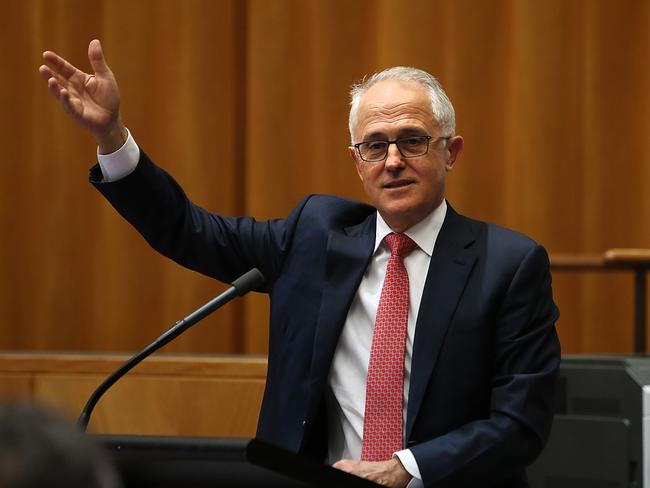
Turnbull made it clear to the senator he was very upset with him and did not appreciate his threats to cross the floor over the issue.
Paterson had made the bombshell threat during a private briefing session with Julie Bishop and Michael Keenan, after the pair had outlined their case for why ratification should go ahead.
“It got quite terse,” one MP present said.
“Julie was affronted that people were so strong and vehement in their opposition.
“But most of us couldn’t even believe the situation was occurring. Why are we even having this conversation?”
Another MP present said Paterson’s threat to cross the floor “blew her mind.”
There’s no doubt in the three years since these dramatic events unfolded on the international stage public sentiment has shifted.
“The whole government has woken up to this. It’s impossible to ignore,” one MP said of China’s rising aggression and bullying tactics, which have included economic sanctions in response to Australia’s routine call for an inquiry into the origins of COVID-19.
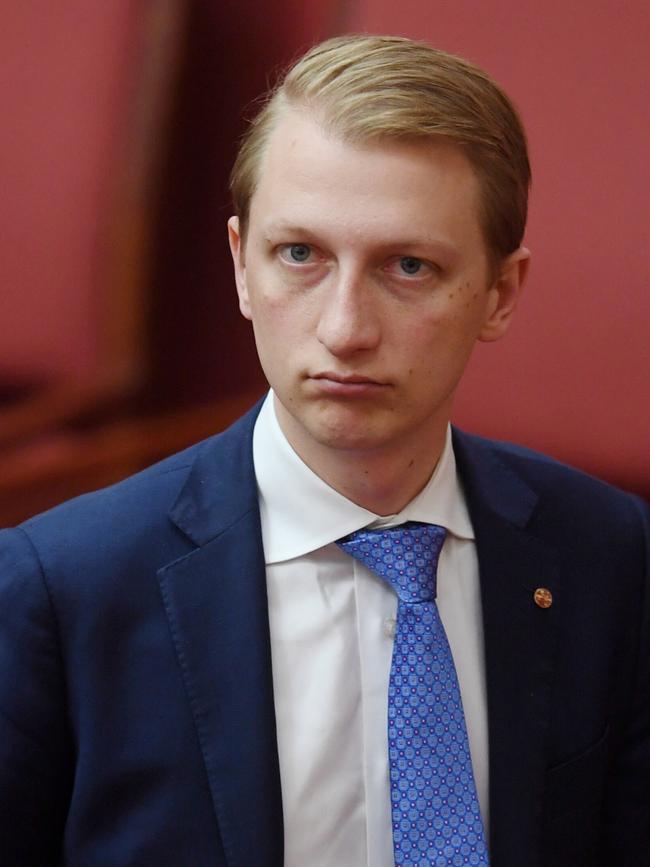
Former Foreign Minister Alexander Downer rejected suggestions the Howard government underestimated China’s threat, telling me “past governments weren’t dealing with the China of 2020.”
“This is a much more aggressive government of China than (the one) we had to deal with when I was the Foreign Minister,” he said.
“That Xi Jinping has become the President of China, his government has engaged in what they like to call ‘wolf warrior diplomacy’, ambassadors have been exceptionally rude about their host governments, they’ve started using economic levers to try to threaten other countries, including us. Punishment is meted out left, right and centre and you’ve seen what happened in Hong Kong.”
As Foreign Minister, Marise Payne has already earned the respect of her colleagues. Criticism of her infrequent media appearances has given way to praise for the substance she brings to the role.
There’s confidence in her ability to do the job as the threat China poses escalates.
Aside from the “grey space between peace and war” – the economic coercion, the interference in politics and business and cyber warfare – the vulnerability of Australia’s situation is even more grave than this.
The Defence Strategic Update, released a week ago, warned of the rising military threat in the Indo-Pacific, stating Australia “must be better prepared for the prospect of high-intensity conflict.”
Morrison’s comments comparing the world now to 1930s and 40s Europe demonstrates the seriousness with which he heeds this advice.
